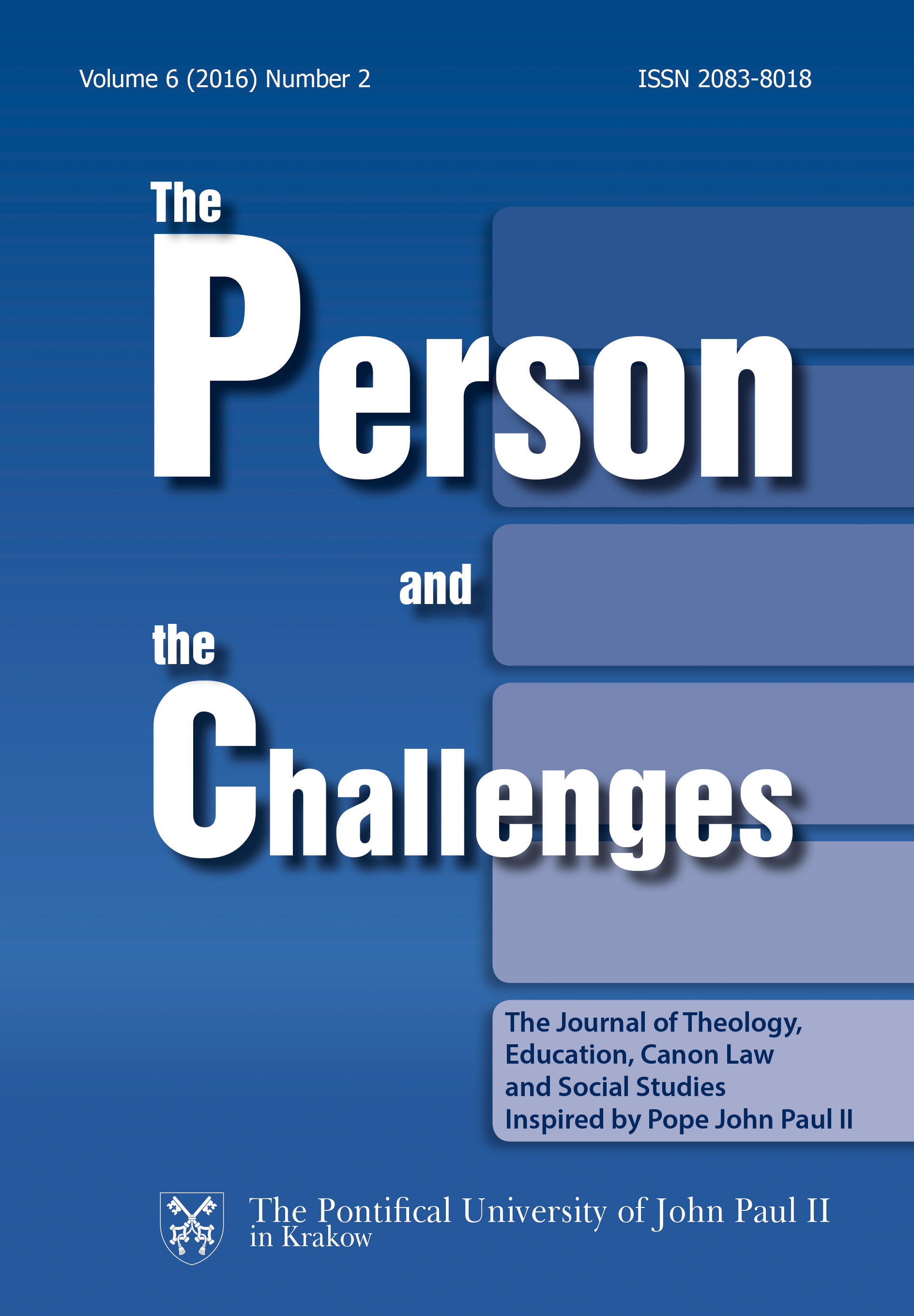Human Dignity in Law – A Case Study of the Polish Legal System
DOI:
https://doi.org/10.15633/pch.1894Słowa kluczowe:
Dignity, international law, Polish Constitution, Universal Declaration of Human Rights, International Covenant on Civil and Political RightsAbstrakt
Human dignity is one of the most fundamental ideas in the entire international human rights system. As from the Universal Declaration of Human Rights, in 1948, the concept of the human dignity become used as a tool to protect the basic needs of humans. The other formal instruments of international human rights also make reference to dignity. Whereas international law widely accepted the inherence of dignity, controversies still arise around the source of the dignity. Polish lawmakers, on the other hand, have no doubt about the fact the concept of dignity comes from natural law. Poland, in her Constitution, refers to the teaching of John Paul II about the source, value and meaning of human dignity. There is no doubt that concept of human dignity, even when it is controversial, is the most widely accepted by all religions and political society in the world.Bibliografia
Baker C., “Dignity in International Human Rights Law”, International Write for Rights Movement (2011).
Carozza P. G., “Human Dignity and Judicial Interpretation of Human Rights: A Reply”, The European Journal of International Law, vol. 19 no. 5.
Chmaj M., Wolności i prawa człowieka w Konstytucji Rzeczypospolitej Polskiej, Warszawa 2008.
Jan Paweł II, List do Sekretarz Generalnej Gertrude Mongella, IV światowej konferencji ONZ poświęconej kobiecie, Watykan, 26 maja 1995 r., http://nauczaniejp2.pl/dokumenty (06.09.2016).
Jan Paweł II, Ecclesia in America, w: Dzieła zebrane, red. P. Ptasznik, t. 2: Adhortacje, Kraków 2006.
McCrudde Ch., Human Dignity and Judicial Interpretation of Human Rights, “Eur J Int Law” (2008) 19 (4), p. 655–724 (doi: 10.1093/ejil/chn043).
Osiatyński W., Human Rights and their Limits, Budapest 2009.
Novak M., Godność człowieka, wolność osoby, „Przegląd Powszechny” (1998) nr 1.
Pope Francis, Address to the European Parliament in Strasbourg, on Nov. 25, 2014, http://www.catholicnewsagency.com/news/pope‑tells‑haggard‑europe‑that‑human‑
dignity‑is‑key‑to‑renewal-89576/ (06.09.2016).
Pabjan T., Some remarks on the conflict between faith and science, “The Person and the Challenges” 6 (2016) 1.
Shleton D., The Oxford Handbook of International Human Rights Law, Oxford 2013.
Trybunał Konstytucyjny, http://trybunal.gov.pl/en (02.09.2016).
Tushnet M., Fleiner T., Saunders C., Routledge Handbook of Constitutional Law, Abingon 2013.
Zientkowski P., i inni, W poszukiwaniu paradygmatu wartości, w: Z problemów bezpieczeństwa: Prawa człowieka, red. T. Jasudowicz i inni, „Zeszyt Naukowy” nr 4/2b/2012, Chojnice.
The Universal Declaration of Human Rights, United Nations General Assembly in Paris on 10 December 1948 General Assembly resolution 217 (III).
Międzynarodowy Pakt Praw Obywatelskich i Politycznych otwarty do podpisu w Nowym Jorku dnia 19 grudnia 1966 r., DZ. U. 1977 nr 38 poz. 167.
The Constitution of the Republic of Poland of 2nd April, 1997, as published DZ. U. nr. 78, poz. 483, as amended; the translation of the Constitution is taken from the official web side of Polish Sejm, http://www.sejm.gov.pl/prawo/konst/angielski/kon1.htm (19.02.2016).
Wyrok Trybunału Konstytucyjnego, z dnia 23 marca 1999 r., sygn. K 2/98, OTK ZU Nr 3(25)/1999, poz. 38.
Wyrok TK z dnia 15 października 2002 r., sygn. akt SK 6/02, OTK ZU Nr 5/A/2002, poz. 65.
Wyrok TK z dnia 4 kwietnia 2001 r., sygn. akt K 11/00, OTK ZU Nr 3(41)/2001, poz. 54.
Wyrok TK z dnia 29 kwietnia 2003 r., sygn. akt SK 24/02, OTK ZU Nr 4/A/2003, poz. 33.
Wyrok TK z dnia 5 marca 2003 r., sygn. akt K 7/01, OTK ZU Nr 3/A/2003, poz. 19.
Wyrok Trybunału Konstytucyjnego z dnia 7 lutego 2005 r. sygn. akt SK 49/03.
Pobrania
Opublikowane
Numer
Dział
Licencja
Prawa autorskie (c) 2016 Magdalena Butrymowicz

Utwór dostępny jest na licencji Creative Commons Uznanie autorstwa 4.0 Międzynarodowe.
Twórca oświadcza, że służą mu prawa autorskie do utworu i że nie są ograniczone w zakresie objętym niniejszym oświadczeniem oraz że utwór jest dziełem oryginalnym i nie narusza praw autorskich innych osób.
Twórca zezwala Uniwersytetowi Papieskiemu Jana Pawła II w Krakowie na nieodpłatne, niewyłączne i nieograniczone w czasie korzystanie z utworu, to jest:
- utrwalanie i zwielokrotnianie: wytwarzanie egzemplarzy utworu techniką drukarską, reprograficzną, zapisu magnetycznego oraz techniką cyfrową;
- obrotu oryginałem albo egzemplarzami, na których utwór utrwalono (wprowadzanie do obrotu, użyczenie lub najem oryginału albo egzemplarzy, publiczne wystawienie, wyświetlenie, a także publiczne udostępnianie utworu w taki sposób, aby każdy mógł mieć do niego dostęp w miejscu i w czasie przez siebie wybranym);
- włączenie utworu w skład utworu zbiorowego;
- udzielanie przez Uniwersytet Papieski Jana Pawła II w Krakowie sublicencji Creative Commons Uznanie autorstwa 4.0 Międzynarodowe (CC BY 4.0)
Uniwersytet Papieski Jana Pawła II w Krakowie udostępnia utwór na Platformie Czasopism należącej do uczelni, na licencji Creative Commons Uznanie autorstwa 4.0 Międzynarodowe (CC BY 4.0). Tym samym uprawnia wszystkich zainteresowanych do korzystania z utworu pod następującymi warunkami:
- zostanie podany autor i tytuł utworu,
- zostanie podane miejsce publikacji (tytuł czasopisma i adres internetowy do oryginalnie opublikowanego utworu).

